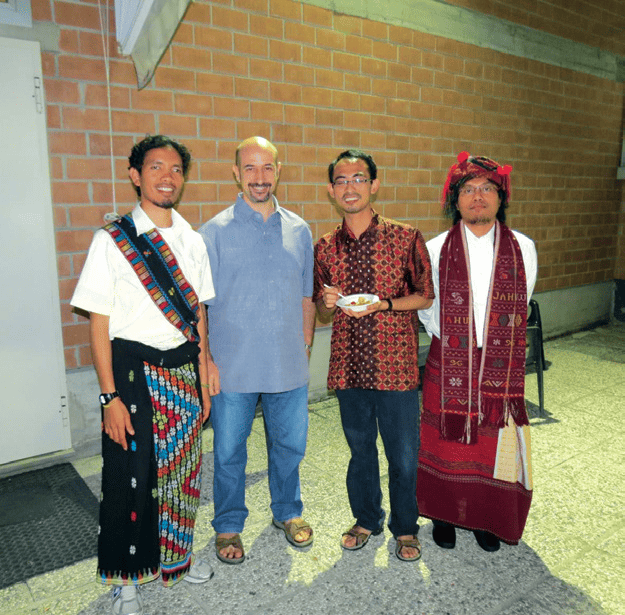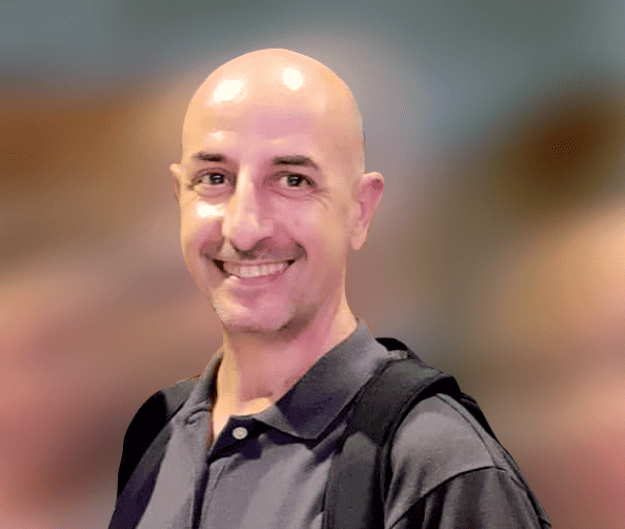
We can roughly envisage some of the leading causes of conflicts and injustice that humanity is facing today, such as cultural colonialism, a globalization that does not respect differences, suprematism, xenophobia, and extreme consumerism, which overlook the care for the weak and the sacrality of human dignity, and the absolutization of the so-called “national interests.” At the same time, we cannot deny that religions can be instrumentalized by believers and religious groups to foster extremism and conflicts rather than peace and mutual understanding. An extremist is someone who absolutizes his vision that he intends to materialize at any cost, even using violent and illegal means. The goal, which might be noble and spiritual, is pursued with means that contradict the goal itself: We cannot worship the God of Peace while upholding violence and war. We believe instead that our faiths promote a dialogic attitude rather than extremism. And at the same time, we believe that our spiritual treasures can play an important role in countering extremisms, especially those of a religious nature.
The Catholic Church
The leaders of the Catholic Church have reached the conviction that violence and war is never a solution, but rather, the beginning of new conflicts and tensions. We remember the address of Paul VI to the United Nations: “no more war, war never again!” And considering the immense destructive power of modern weapons, Pope Francis says in the Fratelli Tutti: “We can no longer think of war as a solution, because its risks will probably always be greater than its supposed benefits. In view of this, it is very difficult nowadays to invoke the rational criteria elaborated in earlier centuries to speak of the possibility of a “just war.” “War never again!” Pope Benedict XVI, who passed away last year, recognizes that violence contradicts the very nature of the Christian faith. In the meeting of religions for peace in Assisi (Italy) in 2011, he stated: “Yes, it is true. In the course of history, force [violence] has also been used in the name of the Christian faith. We acknowledge it with great shame. But it is utterly clear that this was an abuse of the Christian faith, one that evidently contradicts its true nature.” Pope Francis is strongly convinced of the role of religions in building peace, justice, and fraternity in the world. In his Encyclical Letter Fratelli Tutti, he affirms that a sincere relationship with God is a necessary condition for building positive relationships among people. By quoting his predecessor, John Paul II, he says: “If there is no transcendent truth, in obedience to which man achieves his full identity, then there is no sure principle for guaranteeing just relations between people. Their self-interest as a class, group or nation would inevitably set them in opposition to one another… The root of modern totalitarianism is to be found in the denial of the transcendent dignity of the human person who, as the visible image of the invisible God, is therefore, by his very nature, the subject of rights that no one may violate…” The Document on Human Fraternity signed by Pope Francis and the Grand Imam al-Tayyeb of Al-Azhar University in Abu Dhabi in 2019 affirms that terrorism, war, and violence cannot be the product of an authentic faith. It states: “History shows that religious extremism, national extremism and also intolerance have produced in the world, be it in the East or West, what might be referred to as signs of a “third world war fought piecemeal” … “Terrorism is deplorable and threatens the security of people, be they in the East or the West, the North or the South, and disseminates panic, terror and pessimism, but this is not due to religion, even when terrorists instrumentalize it. It is due, rather, to an accumulation of incorrect interpretations of religious texts and to policies linked to hunger, poverty, injustice, oppression, and pride.” In the same document, the Pope and the Grand Imam Al-Tayyeb agree upon the need for a strong collaboration of religious leaders, in particular, Muslim and Christian, for promoting peace, mutual understanding, and fraternity.
The Focolare way of dialogue
The adventure of the Focolare in interreligious dialogue starts with its encounter with traditional religions that happened in Cameroon in the 1960s. Then, Chiara Lubich, the foundress of the Movement, clearly understood the calling of the Focolare to interreligious dialogue on the occasion of her being awarded the Templeton Prize for Progress in Religion, in London in 1977. From that time onwards, the Focolare engagement in interreligious dialogue has developed at different levels (from dialogue of life to academic and spiritual dialogues) wherever the Movement has taken root. It would be enough to mention the relationship with Buddhist movements and monasteries in Thailand and Japan, with Muslim communities in Algeria, and a Hindu-Gandhian movement in India. But interfaith relationships at the grassroots are implemented wherever the Movement is present, and the Philippines is no exception. Moreover, the Focolare is also committed to dialogue with people of good will who do not claim any religious affiliation, atheists and non-believers, as the Movement has the specific task of fostering unity among all people. Regarding the “methodology” of the Focolare, Chiara Lubich underlines the need to refer to the Golden Rule: “In everything, do to others as you would have them do to you” (Mt 7:12). This important norm is found in the Gospel, but also in every other religious tradition. The Golden Rule is a meeting point for every interfaith encounter since it is a commandment that originates from within each one’s spiritual tradition, and so, it is not perceived as an alien imposition. Moreover, Chiara Lubich inspired the members of the Focolare to live the so-called “Art of Loving” which consists of several steps: loving all (friendly and unfriendly people, members of our community as well as those outside of other groups…), being the first to love, make ourself one with the other, loving your enemy, perceiving the presence of the Divine in the other, etc. This art of loving is lived by the members of Focolare in their everyday life and relationships, at school, at work, in official meetings, etc. It is lived out by adults and children as well. People grow in loving others as themselves. The concrete love of the members of the Movement is the main road toward dialogue with everybody, including people of other religions and convictions. The Focolare, therefore, believes in the “extremism of dialogue,” as Maria Voce said while addressing other religious leaders in a meeting at the United Nations in 2015.
My Personal Experience

Let me share a personal experience. I was assigned to Indonesia for 18 years before moving to the Philippines. Indonesia is the country with the largest Muslim population in the world. In charge of the formation of new Christian religious leaders in a seminary of my congregation, I tried to share my passion for interreligious dialogue, in particular with Islam, with my younger brothers. I started by engaging myself in attending conferences in a Sufi mosque and with lecturers at a Muslim university. By doing so, I started building relationships with several dear Muslim friends. The seminarians were also committed in working and collaborating every week with interreligious groups and Islamic institutions, such as the Abdurrahman Wahid and Maarif Centers, and the Indonesian Conference on Religions and Peace. Our formation house was promoting monthly meetings on interreligious dialogue, welcoming other friends interested in interfaith relationships. Now, also here in Manila, I continue to instill the same spirit in the heart of my seminarians. At first, some of our young brothers were resistant to this formation to dialogue, but step by step, some of them discovered a passion for it and now keep on nurturing the desire to build positive relationships with other believers. I do believe that it is the responsibility of leaders and educators to find ways to help the new generations experience positive interfaith relations. The world of tomorrow belongs to them.
Conclusion
We all believe that religions help the human race to grow in its relationship with God, and at the same time, they should foster unity and fraternity among people. There is a strong need, and it is a big responsibility for religious leaders and educators to deepen and promote the authentic teaching of our respective spiritual paths and to avoid the allurement of letting our religious treasures be used for selfish and worldly interests. At the same time, we need to be creative in finding ways to build unity in our faith diversity: We need to overcome being content merely on the level of tolerance (which means “enduring” the other living next to me without loving him or her) in order to have a deeper awareness of being part of the same human family. In a recent meeting of Uni-Harmony Partners in Tagaytay, the daughter of Prof. Julkipli M. Wadi made a very beautiful and deep statement. She said that our being of different faiths and yet together is “cool!” Yes, definitely it is, because there is something divine, spiritual, in it! Let us be witnesses of the beauty of positive and fraternal relationships in our diversity, to testify that dialogue is the constructive alternative to violence and extremism.
Fr. Matteo Rebecchi, SX
The author is an Italian religious priest who is a formator at the Xaverian Missionaries Theology House in Quezon City (Philippines).




